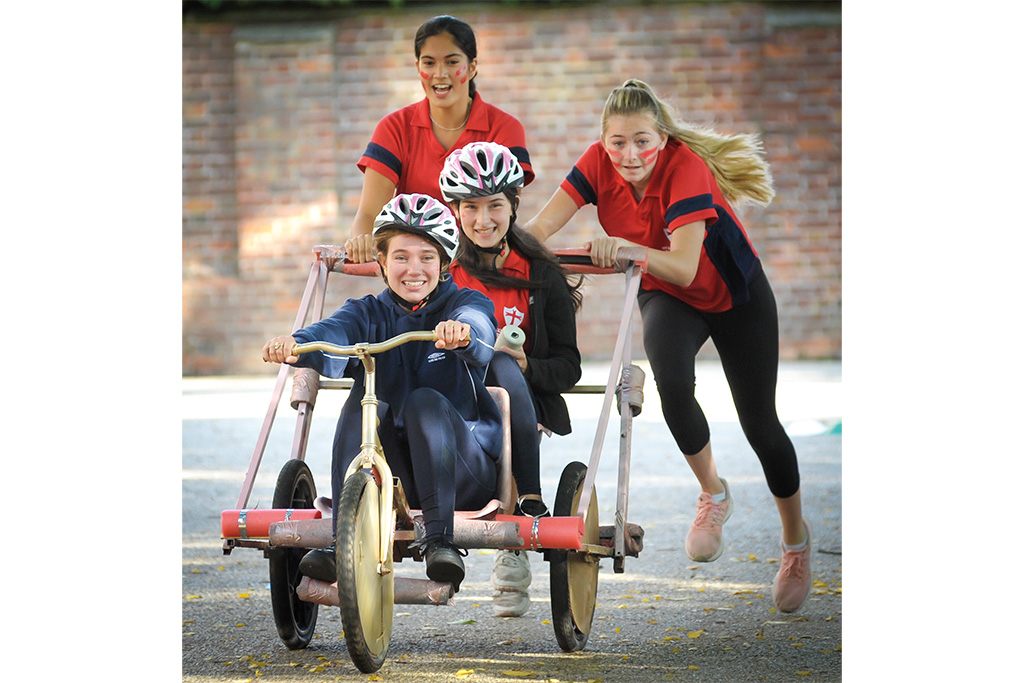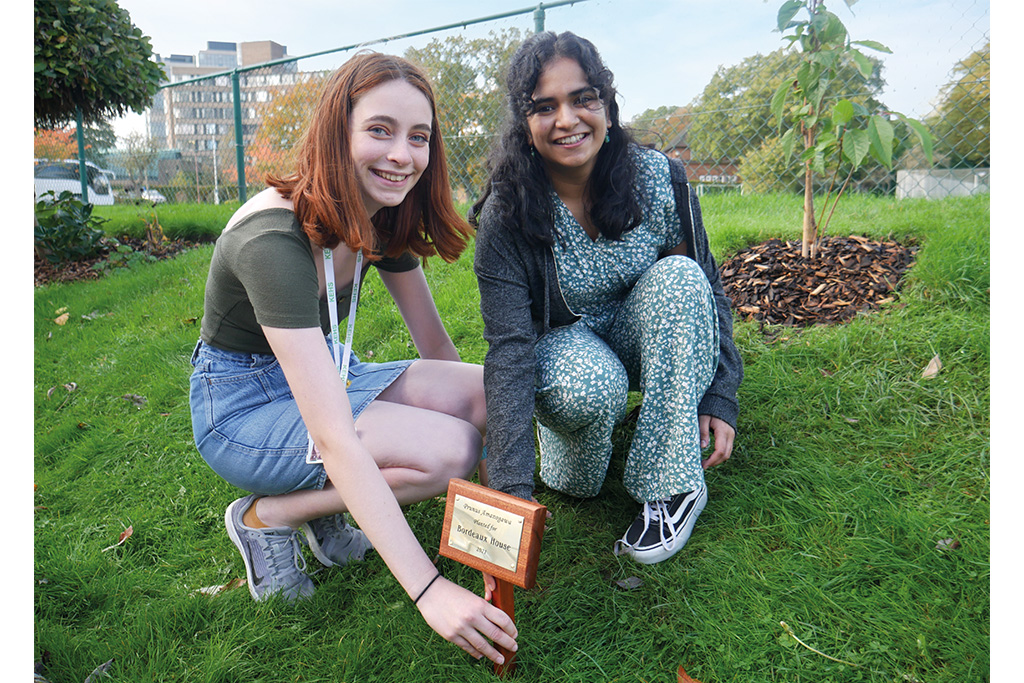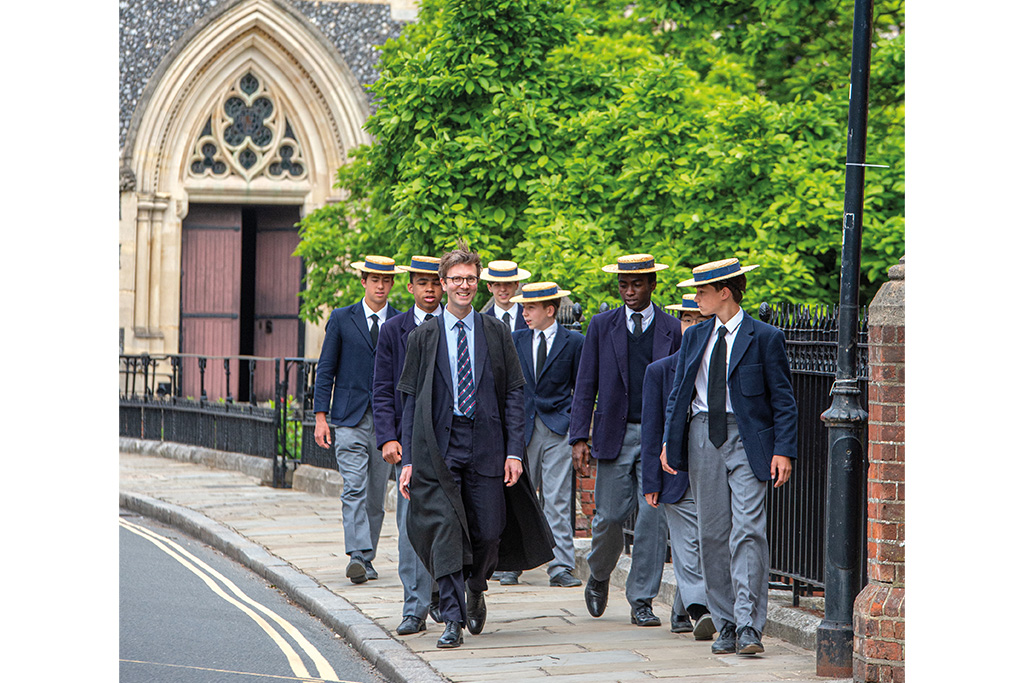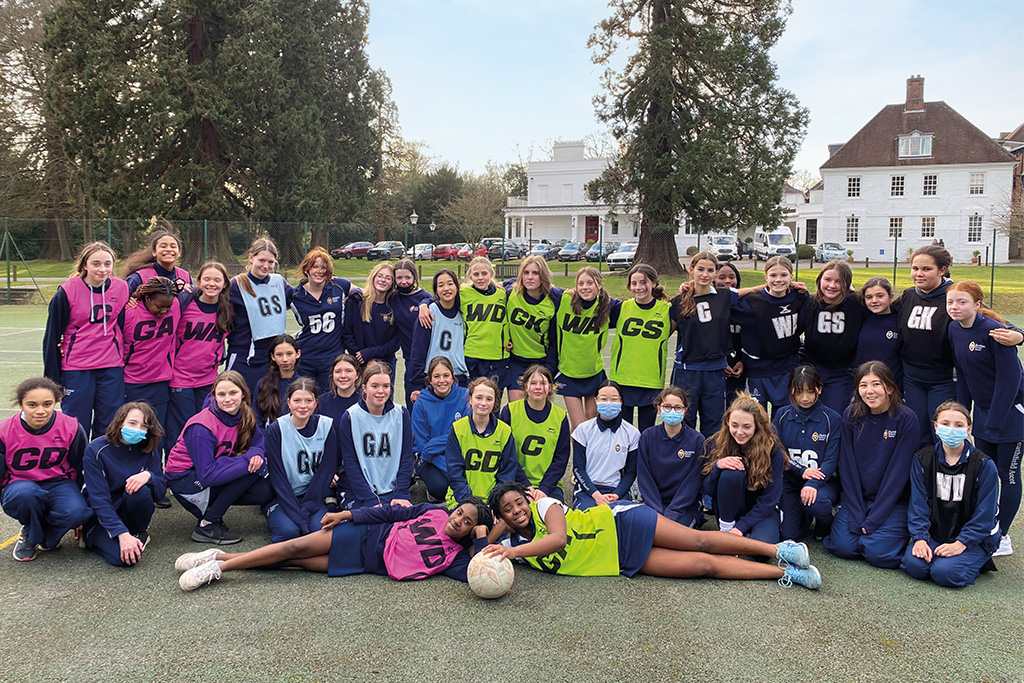Sorted!
By
3 years ago

Thanks to Harry Potter and that hat, everyone wants to belong to a House again, says Sally Jones
The house system is on a high in independent schools – and one reason, according to insiders, is the popularity of Harry Potter and the Hogwarts School Sorting Hat. Houses, day and boarding, once seemed mainly an administrative tool to divide pupils into smaller, more manageable units. Over the past decade, however, the system has become a powerful driver for numerous offbeat and imaginative opportunities.
We shouldn’t be surprised by the connection: who can forget the sense of excitement they experienced on reading the Harry Potter books, as the omniscient Sorting Hat allotted each newbie the right house for them, in impeccable rhyming couplets? The selection seemed based mostly on personality, skills and family tradition: Gryffindor for the brave and public-spirited (‘Hooray!’), Slytherin for the cunning, devious and anyone called Malfoy (‘Boo, hiss!’). No wonder, thousands of us Potter fanatics, well beyond school age, love taking the online test to determine which house we would have entered, had we boarded the Hogwarts Express.
In reality, at some schools, the house system died out, as competitive fixtures and the hierarchies of house captains fell out of favour. Elsewhere, pupils’ jam-packed schedules thanks to the growing demands of the curriculum made meaningful house activities virtually unworkable.

At King Edward VI High School for Girls, Birmingham, the system was abandoned about 30 years ago as irrelevant and outdated. Now however, their original four houses, Tudor, Seymour, Bordeaux and Beaufort, all names linked to female members of Edward VI’s dynasty, are back with a bang, reintroduced to universal acclaim by principal Kirsty von Malaisé.
‘One reason we’re bringing back houses is to unify the community, post-Covid,’ says Andy Duncombe, KEHS’s Assistant Head (Community), who is overseeing the launch of the updated system. ‘We’ve planted four new cherry trees for the four houses, as part of the ‘Green Canopy’ element of the Queen’s jubilee celebrations and even made a Harry Potter-style video, revealing our heads of houses plus our house captains and vice-captains.
‘Siblings go into the same houses, and daughters of Old Edwardians usually go into their mother’s old house. Our teachers and support staff are allocated houses, too, and it’s been a roaring success with lots of new activities, like benchball, an invasion game played in the sports hall. It’s mayhem and a real school obsession.’
Duncombe adds: ‘We’re having House Bakeoffs, an Ultimate Frisbee competition and a Monologue Slam contest – everyone loves the sense of friendly competition and inclusivity. Our girls are often highly competitive, which to an extent manifests itself in the academic side of the school, so the fun of the house activities really helps to lighten those pressures.’
Pupils endorse the move. ‘I was absolutely buzzing when I heard they were bringing back houses,’ said upper sixth-former Muntaha Chowdhury, 18, the inaugural Seymour House Captain, who hopes to read medicine at Cambridge University. ‘The new songwriting competition has been terrific.’ Students had a month or so to write and record a song and this helped several shy girls discover their voices.
She adds: ‘The classics department is running a ‘Make Your Own Language’ contest, which the younger girls love. We have a rowdy game invented at KEHS called Danders, like an explosive version of indoor rounders so ‘House Danders’ is hugely popular. Being house captain has really added an extra dimension to my final year at KEHS – it’s magic!’
For my son, Roly Grant, an Old Edwardian from KES, Birmingham, KEHS’s brother school, and now a senior strategist in the Civil Service, house activities had a huge impact on his future career.
‘KES has eight houses named after old headmasters,’ Grant says. ‘I was in Prince Lee and it really built my self-belief, getting involved in choir, inter-house cricket, tennis, athletics, squash – you name it. It fostered a sense of teamwork, and gave me a taste of leadership on a relatively small stage so if things went wrong, it didn’t matter – and if you did a good job, it boosted your confidence. My team at work includes a lot of senior people but my school experience taught me to be encouraging and treat everyone equally.’

Rugby School lays proud claim to have invented the whole idea of houses in public schools thanks to its iconic headmaster Dr Thomas Arnold, as part of his revolutionary praeposter (prefect) system. And house loyalty remains as strong as ever: Rugby’s 870 students, a combination of full boarders and day pupils, are spread across 15 houses, including two day houses, and house competitions in everything from football to debating generate much friendly rivalry.
There have been unexpected benefits: 16-year-old Omar Sultanli from Azerbaijan, recently appointed head of Cotton House, said the system was crucial in helping him settle into the school.
‘I came to England and found the completely new environment very stressful,’ Sultanli explains. ‘I felt homesick and knew no one else in school but the lower sixth-form boys in my house were really supportive and kind to us. There was very little hierarchy and I loved the atmosphere at once – I really wanted to be head of house one day and my parents are incredibly proud that I’ve achieved it.
The best moment? When I directed and acted in our House Drama play. I’d never done drama before and we created a play from scratch. It didn’t win but it was brilliant. I was nervous but we worked as a team and I learned so much about myself and the cast, it was an amazing feeling.’
Sultanli can see potential benefits, too: ‘One day I may want to go into politics – I love arguing and debating. I wasn’t specially confident or good at public speaking before but the house system has given me plenty of opportunities and now it feels natural and straightforward.’
Biologist Liz Sale is house mistress of Bradley, all-male until 1991 but now a house of 52 girls aged 13 to 18. ‘Dining at Rugby is all in-house,’ Sale says. ‘I eat with the girls three times a day, often joined by teachers from around the school. This builds softer skills; looking after guests and good conversation. The girls welcome visitors and enjoy finding out about them. Prospective parents will come to lunch and say afterwards, ‘That’s what I want my daughter to be like.’
She adds: ‘I nurture girls through the house system and we get them to do a skit or play an instrument, just in front of their house and a few parents.
‘One recent new girl was shy but admitted she played the violin. She got up and we almost fell off our seats, she was so good. It gave the girl a real confidence boost and sense of belonging.’
Another girl has Aspergers. ‘She was up-front about it and wanted her housemates to know. From that moment everyone took the view ‘She’s our girl – we’re all going to look out for her.’ Now she’s discovered a gift for leadership through the CCF and she’ll probably go into the Army.’
When new girls join Bradley, Sale tells them, ‘These girls will come to your wedding and hold your babies and you’ll always be part of each other’s lives. It’s like reading: when you start a book, you don’t always know if you’ll like it but when you get to the end you don’t want it to finish, I feel we’re writing a really lovely story.’

Harrow’s 12 houses help to perpetuate its long story with numerous traditions, like the famous Harrow Songs including ‘Forty Years On’ and ‘The Silver Arrow’, great favourites of Old Harrovian Winston Churchill. Sung in the houses each term, these have been a unifying force since the then Head of Music John Farmer wrote the first in 1864. In the inter-house singing contest, groups from each house perform a close-harmony a capella song, in ‘The Glees’ then a unison arrangement with piano accompaniment, ‘The Twelves’.
At sporting powerhouse Millfield, the 19 boarding houses are the focal point of student life. Its 970 full boarders are highly supportive of each other and go to sports matches, concerts or plays where friends are performing. The houses also offer an oasis of rest in the busy environment.
‘Weekends at Millfield are busy,’ said sixth form boarder Réshma Rao. ‘We have lessons on Saturday and I’ll sometimes have a girls’ football fixture in the afternoon. In the evenings, it’s great to relax and spend time with friends. We usually watch a film or cook fajitas or pizzas with our housemistress. I also love Sunday brunch in the Dining Hall.’

Inspirational women are the choice of house name at Heathfield School, Ascot; each of its 225 girls joins either Austen, Seacole, de Valois or Somerville. House events bond newcomers and their peers with sport competitions, talent shows, quizzes and fundraising for local and national charities, plus merits for good work – and demerits for bad behaviour.
‘The house system embodies our whole community and unites the different age groups, helping the school to flourish,’ says one sixth-former. ‘It gives the older girls unique opportunities to develop their leadership skills and enables the younger ones to showcase their talents and make lifelong friendships among their housemates. The most offbeat house event that we hold is the four-way tug o’ war. This is a rope with four tails and each year group breaks into houses to take part. It’s an absolute riot.’
‘The students are fiercely competitive and loyal to their house,’ adds Wendy Reynolds, director of co-curricular. ‘At the final Assembly of term, before the winning house is announced there’s great anticipation demonstrated by the traditional loud drum roll of feet! To celebrate, the winners can choose an evening out for the whole house the following term.’
As Cotton House captain, Rugbeian Omar Sultanli admits, he is also highly competitive – but says life within the house is all about ‘we’, not ‘I’.
‘Our housemaster has a slogan: #beagoodbloke,’ he explains, ‘encouraging us to help and look after others at the same time as realising our own potential. That’s one of the lessons I’ll take away from here.’
See the online listings of the schools mentioned here: Heathfield School, Rugby School, KES Birmingham, Harrow School, Millfield School



